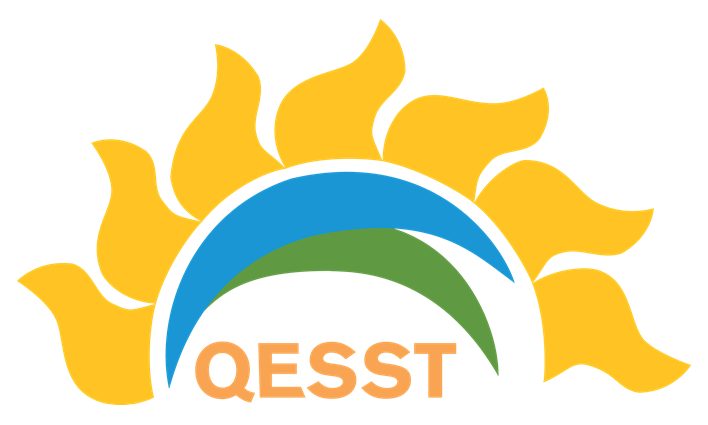Cities of Light Narrative Hackathon Imagines Inclusive Solar Energy Futures
Outcome/Accomplishment
Researchers at the National Science Foundation (NSF)-funded Quantum Energy and Sustainable Solar Technologies (QESST) Engineering Research Center (ERC) headquartered at Arizona State University (ASU) leveraged an innovative "narrative hackathon" methodology to explore how the transition to solar energy will transform cities; catalyze revolutions in politics, governance, and culture; and create diverse futures for human communities. The QESST Cities of LIght "narrative hackathon" event was held at the U.S. National Renewable Energy Laboratory (NREL) in Golden, Colorado in February 2020 in partnership with its Center for Integrated Mobility Sciences. ASU's Center for Science and the Imagination supported the publication of a full-length book afterward.
Impact/Benefits
The Cities of Light "narrative hackathon" project tackles the challenges and opportunities for justice, equity, diversity, and inclusion in the future of solar energy in inner city, marginalized, and Indigenous communities; across urban-rural divides; and, in the face of colonial legacies and racial inequalities. The project engaged a multidisciplinary team of engineers, social scientists, science fiction writers, and artists in imagining inclusive solar futures for four U.S. cities.
Explanation/Background
The premise of the project held that the design of solar energy matters in shaping the future of urban communities; the event asked participants to consider how each city's geographic and social features, along with the arc of its particular local history, create unique challenges and opportunities for working collectively to design more equitable energy futures. Participants collaborated with experts from ASU and NREL in fields ranging from engineering and data science to sociology, public policy, and architecture.
Cities of Light: A Collection of Solar Futures, edited by Joey Eschrich and Clark A. Miller, was published in March 2021. The book leverages stories, art, and essays to explore urban futures across four diverse cities, including San Juan, Puerto Rico; San Antonio, Texas; Chicago, Illinois; and Portland, Oregon. Stories by award-winning science fiction writers featured in the book are: The Windup Girl by Paolo Bacigalupi; Machinehood by S.B. Divya; and Nigerians in Space by Deji Olukotun. Andrew Dana Hudson also contributed. The full-length work is available online at: https://csi.asu.edu/story/cities-of-light
Location
Tempe, Arizonawebsite
Start Year
Energy and Sustainability
Energy, Sustainability, and Infrastructure
Lead Institution
Core Partners
Fact Sheet
Outcome/Accomplishment
Researchers at the National Science Foundation (NSF)-funded Quantum Energy and Sustainable Solar Technologies (QESST) Engineering Research Center (ERC) headquartered at Arizona State University (ASU) leveraged an innovative "narrative hackathon" methodology to explore how the transition to solar energy will transform cities; catalyze revolutions in politics, governance, and culture; and create diverse futures for human communities. The QESST Cities of LIght "narrative hackathon" event was held at the U.S. National Renewable Energy Laboratory (NREL) in Golden, Colorado in February 2020 in partnership with its Center for Integrated Mobility Sciences. ASU's Center for Science and the Imagination supported the publication of a full-length book afterward.
Location
Tempe, Arizonawebsite
Start Year
Energy and Sustainability
Energy, Sustainability, and Infrastructure
Lead Institution
Core Partners
Fact Sheet
Impact/benefits
The Cities of Light "narrative hackathon" project tackles the challenges and opportunities for justice, equity, diversity, and inclusion in the future of solar energy in inner city, marginalized, and Indigenous communities; across urban-rural divides; and, in the face of colonial legacies and racial inequalities. The project engaged a multidisciplinary team of engineers, social scientists, science fiction writers, and artists in imagining inclusive solar futures for four U.S. cities.
Explanation/Background
The premise of the project held that the design of solar energy matters in shaping the future of urban communities; the event asked participants to consider how each city's geographic and social features, along with the arc of its particular local history, create unique challenges and opportunities for working collectively to design more equitable energy futures. Participants collaborated with experts from ASU and NREL in fields ranging from engineering and data science to sociology, public policy, and architecture.
Cities of Light: A Collection of Solar Futures, edited by Joey Eschrich and Clark A. Miller, was published in March 2021. The book leverages stories, art, and essays to explore urban futures across four diverse cities, including San Juan, Puerto Rico; San Antonio, Texas; Chicago, Illinois; and Portland, Oregon. Stories by award-winning science fiction writers featured in the book are: The Windup Girl by Paolo Bacigalupi; Machinehood by S.B. Divya; and Nigerians in Space by Deji Olukotun. Andrew Dana Hudson also contributed. The full-length work is available online at: https://csi.asu.edu/story/cities-of-light

